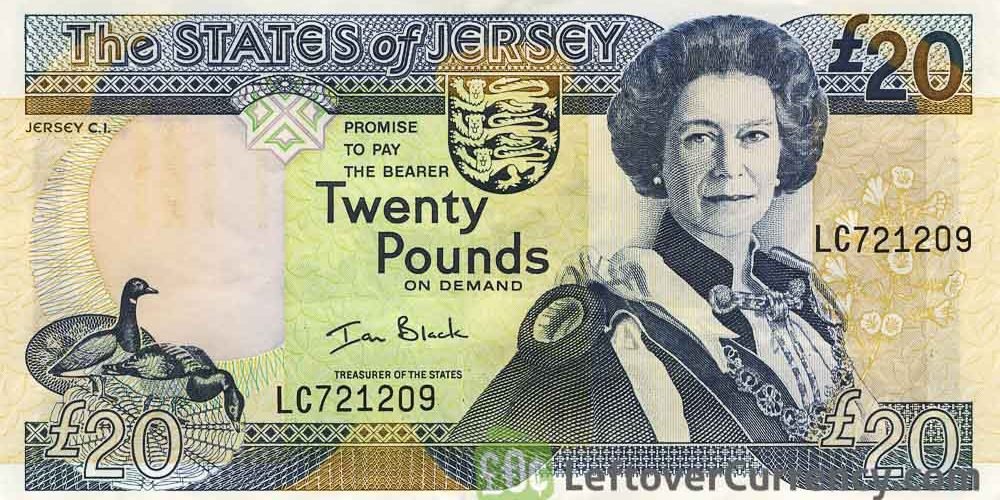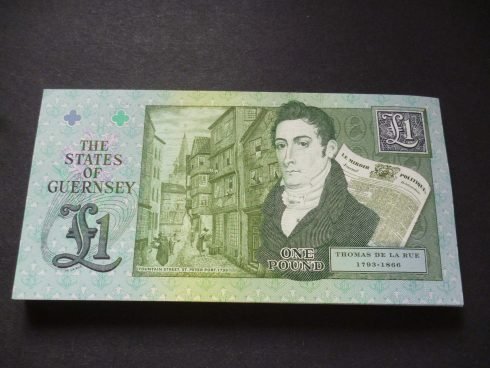We didn’t realise how many questions people had about what currency they use in Jersey, we’ve pulled together a huge long list of them to hopefully help you before you travel.
We’ve summarised them into three main categories; before you travel, when you’re in Jersey and when you get home. If we haven’t answered your questions then let us know and we’ll add it to the guide.
Before you visit Jersey, we’ve got your pre-holiday questions covered…
Everything you need to know when you’ve arrived on holiday…
- Do they have ATMs in Jersey? Where are they?
- Are there banks in Jersey?
- What do Jersey pound notes look like?
- Do they have their own Jersey notes?
- What is Jersey money?
- Does Jersey have its own coins?
- Is the island of Jersey tax free?
- Do you pay VAT when in Jersey?
- Things to buy in Jersey – here’s our recommendations
- Is it expensive to buy things in Jersey?
Arrived back home and find you’ve got some left over money in your pocket…
Before you visit Jersey, we’ve got your pre-holiday questions covered…
What is the currency for Jersey?
In Jersey their currency is sterling, but the island does have its own money, called the Jersey pound. Interestingly it’s one of the last places that you’ll find a pound note (as the UK did away with the pound note back in 1988 to be replaced with the pound coin) Whilst the Jersey pound notes and coins look a little different they are in fact worth the same. During your time in Jersey, you’ll be given Jersey money as change when you’re out and about or shopping, but English money can be used across the island.
Can you use British pounds in Jersey?
You can use Bank of England notes in Jersey as they are legal tender, alongside the Guernsey pound and Scottish banknotes. This is great news for everyone looking to holiday or take a short break to Jersey as you don’t need to change your money before you go, or loose out to any exchange rates. The pound is worth a pound in Jersey!
Can I use Sterling on holiday in Jersey?
Jersey accept all sterling as their currency is also sterling. So whatever Bank of England Notes or coins you have in your piggy bank you can spend them in Jersey. A pound sterling in Jersey = £1 or 100 pence just like in the UK. Interestingly though the Jersey notes do not have sterling on them like the Scottish notes. We’d suggest taking some sterling cash with you.
Are Euros accepted in Jersey?
You can try! Because Jersey has a lot of visitors from France via St Malo then some shops and restaurants do accept Euros as payment. Remember because they are not in the UK, they are not in the euro zone either so best take your pounds and pence to spend! Plus your likely to receive a poor rate of exchange by using Euros as payment, which can make your holiday more expensive.
Can you use Scottish sterling in Jersey?
We would recommend changing it to English notes before you travel. You’ll probably find some shops understand what Scottish currency is, but in others it might cause you problems when paying. The last thing you want is to have to get into a discussion over whether it is legal currency, which it is. If it is no problem for you to get hold of standard UK notes it could well save you lots of problems.
Everything you need to know when you’ve arrived on holiday…
Do they have ATMs in Jersey? Where are they?
When you are in Jersey, most cash machines are grouped together in pairs. One labelled ‘Sterling’ and the other ‘Jersey pound’ which will distribute the currency you require. Most ATM’s if not labelled will distribute Jersey currency, so don’t withdrawal large amounts of cash if you aren’t going to spend it in Jersey. It depends on your bank, but you shouldn’t be charged for cash withdrawals whilst you are in Jersey. Remember that most places you can use a credit card. There are plenty of ATM machines around the island, so no need to worry about running out of cash.
Are there banks in Jersey?
There are currently 27 banks operating in Jersey, most of them can be found in the capital St Helier.
What do Jersey pound notes look like?
The pound is the currency of Jersey, Channel Islands. However Jersey is in the currency union with the UK, and it’s important to note that the Jersey pound is not a separate currency but is an issue of banknotes by the States of Jersey denominated in pound sterling. This is the same way banknotes are issued in Scotland and Northern Ireland. It can be exchanged on par with other sterling coinage and notes.
Do they have their own Jersey notes?
Before you head off to Jersey here is what Jersey notes look like. They are similar to the sterling notes, but a little more colourful. Like British Sterling they have denominations of £5, £10, £20, £50 with the only difference being the £1 note. They have ‘States of Jersey’ written across the top of them.
What is Jersey money?
When you are in Jersey, we’d recommend trying to spend all your Jersey money as its harder to get rid of when you return to the UK. The notes are rarely accepted in the UK, but you can spend the coins as these usually go undetected in car park machines or self service checkouts.
Does Jersey have its own coins?
When you are in Jersey you’ll notice that they have their own coins. They are the same as the sterling coins you use back in the UK. The coins can be used in the UK, as they generally get mixed up in circulation with other sterling currency. So don’t worry if you return home with some odd change in your pocket! When you’re visiting Jersey, see if you can collect a bailiwick of jersey 20p, bailiwick of jersey 10p, bailiwick of jersey 5p and a bailiwick of jersey 2p
Is the island of Jersey tax free?
This is somewhat of a myth, as Jersey is not tax-free. The states of Jersey government raises public revenue from those living in the island via income tax and by duties paid on goods (5% goods and services tax (GST)). However, if you are thinking of value added tax (VAT) then the good news is that this is not charged in Jersey or Guernsey, and in fact all of the other Channel Islands.
Did you know… that for visitors travelling by air, you might just be able to claim back GST on single purchases of selected goods which cost more than £300. You can get your refund form stamped at Jersey airport prior to leaving, however not all shops and retailers are part of the GST refund scheme for visitors so we’d recommend checking with the store prior to making your purchase.
Do you pay VAT when in Jersey?
Jersey along with the other Channel Islands is completely VAT free, which means you should definitely go shopping whilst you are there on holiday.
Things to buy in Jersey – here’s our recommendations
From a locals perspective here are the top tips… buy electrical, jewellery, perfume, alcohol, wine, and make up when you are in the islands – or take advantage of some great duty free deals when you fly over or come by sea. Things to avoid mainly consist of high street brand name that you’ll find in the UK as then tend to charge the same price as if you were shopping back home. Don’t go looking for a bargain in M&S or Next!
Is it expensive to buy things in Jersey?
It’s a question we get asked all the time. No any destination can be expensive depending on the time of year you travel, how you get there, and of course where you stay. Here are a five tips to help you keep the cost of visiting the island down…
- Don’t travel during school or peak dates.
- Consider staying in the Jersey hostel, it’s got fantastic reviews and is great value for money.
- Go by ferry and as a foot passenger, you can pretty much travel all around the island on the bus when you get there.
- Book early and get some great discounts on accommodation and travel.
Arrived back home and find you’ve got some left over money in your pocket…
Can you use jersey pounds in England?
The Jersey notes are not deemed legal tender in the United Kingdom but are legal currency, so creditors and traders may accept them if they so choose. However, in reality this means that most staff who work in stores wont have ever seen a Jersey note, which generally means they will refuse to take them as payment.
Where can I exchange Jersey notes?
Due to the fact that Jersey notes are not legal tender in the UK but are a legal currency, it Is therefore up to the bank or trader whether or not they will accept them. Your best bet is to take it into your bank and ask them to change your jersey notes for you. The reasons some banks don’t accept them is that have to pay the state of Jersey for the tender.
Is Jersey currency valid in England?
No unfortunately not, because the Channel Islands along with the Isle of Man are only crown dependencies of the UK. Meaning they have their own legislative and taxation systems and they are responsible for issuing their own coins and banknotes. Like the coins in the UK, they bear the portrait of the Queen. However despite this, they are only legal tender within the crown dependencies themselves.
Travel Tip! If you have a few notes left over, put them on eBay and make double your money from collectors around the world.
Can I change Jersey notes and coins in the UK?
Most banks will exchange your Jersey notes when you arrive back in the UK, although some people have started saying some banks have refused so best to try and spend them before you leave. Coins are less of a problem, because they are the same size as UK sterling you’ll be able to use them in vending machines, car parking or self service checkouts at the supermarket. Remember that the Jersey pound is worth a pound, so don’t be tempted to let websites offer you less just to get rid of your Jersey currency.
Travel Tip! The Foreign Exchange Desk in Jersey airport will allow you to change £30 Jersey money into £30 English sterling.
Is Jersey Pounds legal tender in UK?
This is a hot topic online, but just because they print their own notes and our Bank of England notes are accepted as tender, their notes are not legal tender over here in the UK mainland. Only Bank of England notes are legal tender in England and Wales (not Scottish as everyone else thinks) However it is a legal currency and if a retailers wish to accept it they may, but they are not obliged to. This is explained in detail on the Bank of England website if you require further information.





